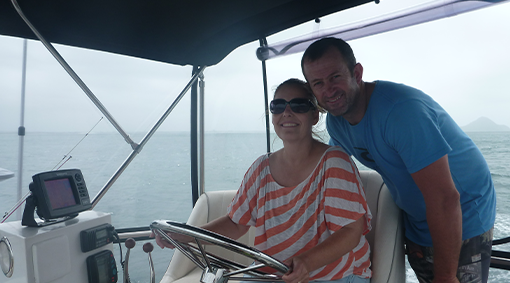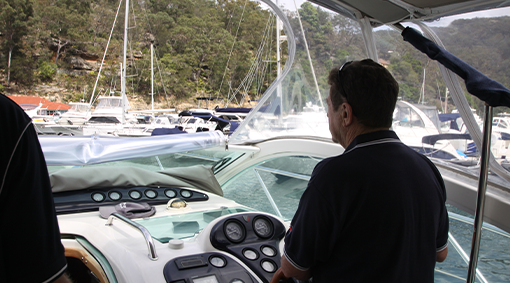 National Maritime College
National Maritime College
Boating education and training.
Before obtaining your car licence you had to learn practical skills. It is important to do the same before taking the helm. With knowledge and experience comes increased safety and boating enjoyment. We can guide and mentor you through your training so that you get the most out of your boating and whilst gaining a greater appreciation of your Skipper's role.
This personalised training is a great way to build your confidence, of getting to know your own boat better, driving it better and understand the systems and navigation equipment on board. It is also a great way to assist a non-boating or partner gain confidence so that you can work together in handling the vessel and involve family or friends who also wish to be part of the training experience. With a commercially qualified trainer assigned to you we tailor the training schedule around you.
The only pre-requisites are that your powerboat, motor cruiser or yacht is seaworthy, fully insured and meets the state safety and registration requirements. And, anyone participating in the training must hold a current boat licence.
As you seek to venture further afield it is important that you are planning your trips to factor in what you need to prepare to ensure you have a safe and enjoyable time aboard. Knowing how to plot your course, calculate times, fuel consumption and provisioning requirements are crucial. We can help you create a voyage plan or review one you already have.
There are so many manufacturers and models of chartplotters, GPS units, radars and radios that just spending some time dedicated to understanding how they work is time well spent. We can spend with you explaining how to use these navigation aids out on the water where you can learn aids how to add waypoints and routes to a chartplotter.
Anyone who has boated at night is amazed how different things are after the light disappears.It can be very disorientating so knowing how to navigate at night is essential for a safe and enjoyable night time experience We can accompany you out for a drive around at night or spend longer planning and executing night passages and entries to harbours.
For many the challenges that handling a vessel in close proximity to other vessels presents creates some stress and frustration which can spoil an otherwise great day out. Spending time just focusing on handling your vessel and berthing it is time well spent, no matter how long you have been boating.
Learn more about your local boating areas. You may be new to an area or want to explore a new place. We can make this less stressful and more fun as you will have someone else along who knows where it is safe to go and areas to avoid. Our Trainers often know of hidden away bays and anchorages. They may even show you where they are!
We often join a delivery of a new vessel or one that is moving to another marina and port to help the owner (or boat dealer) with the transfer. As boat trainers we want you to helm (versus being solely delivery skippers) so we like to mix in training with the voyage being undertaken.
If you are planning a long trip - to the Pacific Islands, New Zealand or, round the world having designated qualified people ashore to monitor your voyage and activate search and rescue support if needed is like having bonus insurance. Talk to us about the services we provide. We were solo sailor, Lisa Blair Blair's Designated People Ashore when she completed her Antarctica solo circumnavigation.
If you want improve you boat handling skills, you're in the right place. From families taking their first trip, to adults seeking to voyage further and learn more skills, we can help. Ease yourself, family or friends into boating, let them learn boat handling skills at their own pace with a qualified Skipper standing by.


![]()
The Skipper's Duty of Care is a fundamental principal of maritime law and seamanship, which is legislated within State Maritime Acts, National and International Regulations. Regardless of whether you are Master of a big ship or Skipper of a small " tinnie", the vessel owner and Skipper are deemed responsible for every person onboard the vessel, must not endanger other vessels and must be prepared to render assistance to anyone in need of help.
Subscribe to the Bowline Newsletter to get the latest information and training news from the College. It's filled with course information and boating advice. Get a taste for what is coming up, be the first to get information on events and enjoy special offers open to subscribers only.